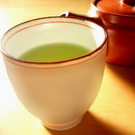Green Tea Blocks Effectiveness Of Velcade Treatment

Researchers have discovered that green tea inactivates the anti-cancer properties of Velcade (bortezomib), a promising and frequently used drug for treating multiple myeloma.
In recent years, green tea products have become a popular health supplement after studies demonstrated that one of its active compounds, EGCG polyphenol, can act as a potent anti-cancer agent. “Cancer patients look to green tea extracts among other natural supplements to complement their therapeutic regimens,” said Axel Schonthal, Ph.D., of the University of Southern California Keck School of Medicine.
With this information in mind, a recent study investigated whether exposing multiple myeloma cells to green tea extract in addition to Velcade would improve treatment outcome. Unexpectedly, tumor cells treated with a green tea-Velcade combination experienced near 100 percent survival. Effectively, the green tea prevented cancer cell destruction by blocking Velcade activity.
In cells, the proteasome acts as a “garbage disposal” by breaking down used and unnecessary proteins, and Velcade functions as a proteasome inhibitor. By shutting off the proteasome function, Velcade disrupts cancerous cells’ life cycles, leading to chaos and eventual cell death.
Unlike several other proteasome inhibitors, the Velcade molecule contains a boronic acid component. Researchers determined that this boronic acid enables EGCG to bind directly to Velcade, thereby inactivating each compound and canceling out the effects of both green tea and Velcade therapy on multiple myeloma cells. Follow-up tests with Viracept demonstrated that green tea did not block its activity.
These study findings have important implications for multiple myeloma patients undergoing treatment. Firstly, EGCG blocked Velcade function at levels easily attainable with over-the-counter green tea supplements (as few as two to three extract capsules).
“The current evidence is sufficient enough to strongly urge patients undergoing [Velcade] therapy to abstain from consuming green tea products, in particular the widely available, highly concentrated green tea and EGCG products that are sold in liquid or capsule form,” said Dr. Schonthal.
Yet, researchers emphasize that these findings only apply to Velcade. For other, non-boronic acid-based multiple myeloma therapies, there is no evidence that green tea negates their effects. "Although the study has exposed detrimental effects of green tea in specific combination with Velcade, this should not minimize the previously reported potentially beneficial effect of this herb," said Dr. Schonthal.
For more information, please see the full study in the journal Blood.
Related Articles:
- None Found
